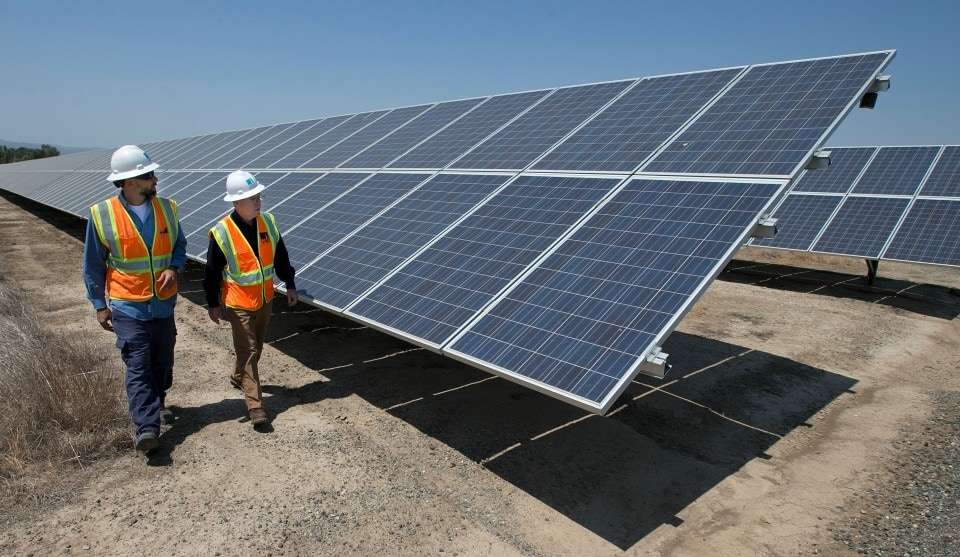The Volokh Conspiracy
Mostly law professors | Sometimes contrarian | Often libertarian | Always independent
When scientists sue scientists

There's nothing unusual about scientific researchers sternly critiquing one another. There's nothing unusual about academics accusing one another of misunderstanding or misrepresenting each other's works. And there's nothing unusual about such exchanges getting heated, and even personal, as many researchers are quite invested in their own work.
What is unusual, however, is for a scientific researcher to file a lawsuit against another researcher (and a scientific publisher) for defamation. Yet that is precisely what Stanford University's Mark Z. Jacobson has done in filing a lawsuit against Christopher Clack and the National Academy of Sciences.
In late September, Jacobson filed a defamation suit in the District of Columbia against Clack and the NAS for publishing a peer-reviewed critique of one of his co-authored papers in the "Proceedings of the National Academy of Sciences." Jacobson further claims that the NAS wronged him by failing to follow its own publication guidelines. (The complaint is here. An explanatory statement is here.) The underlying issue is the credibility of Jacobson's claim that 100 percent of the United States' electricity needs may be met by renewable energy sources.
According to Jacobson, the paper authored by Clack, and joined by another 20 co-authors, made false and misleading claims about Jacobson's work in the process of dismissing his conclusions about the potential of renewable energy. Jacobson objects to Clack, et al., charging that some of Jacobson's conclusions were based upon unfounded, undisclosed assumptions and "modeling error." Jacobson further claims that both Clack and the NAS were aware of these alleged problems before the paper was published. Clack, et al., for their part, have responded in detail to Jacobson's claims. Readers may judge for themselves who has the better of the argument.
Although NAS published Jacobson's response in "PNAS" as well, Jacobson is not satisfied. He is demanding a retraction and is seeking compensatory damages of $10 million each from Clack and NAS. Some of Clack's co-authors, who include Ken Caldeira, David Victor and Jane Long, are identified in the complaint but were not named as defendants in the suit. (For what it's worth, Jacobson's co-authors do not appear to be parties to this suit either.)
Some of the arguments made in the complaint are a bit bizarre. For instance, Jacobson claims the NAS violated its conflict-of-interest disclosure policies by failing to note that some of the contributors to the Clack, et al., paper are "advocates" for various policy positions. Yet Jacobson's own paper doesn't list his own policy advocacy as a potential conflict of interest either.
The idea that academic researchers should turn to court when their work is criticized or contradicted by other researchers is a pernicious one, challenging the sort of robust inquiry upon which scientific research and the discovery of knowledge require. It is absolutely essential that researchers are free to posit hypotheses and subject others' hypotheses to critique. This inevitably entails not just questioning other researchers' conclusions, but also pointing out potential errors and mistakes. Of course it's true that strong critiques of one's academic work may have an effect on one's academic reputation, but that goes with the territory. The same goes for making erroneous allegations against other researchers. If the fear of such reputational harms is compounded by the threat of litigation, academic inquiry will be chilled as researchers become more reluctant to point out the problems in each others' work.
Jacobson claims the Clack, et al., critique is damaging his reputation and exposing him to "ridicule." Judging from the reactions to this suit I've seen thus far, it seems to me Jacobson's decision to sue has done more damage in this regard than the critique of his work. ACSH's Alex Berezow, for instance, writes:
The lawsuit is completely obscene.
Let's set aside the scientific arguments in this debate, which revolve around the feasibility of 100% renewable energy. Smart people can disagree about whether that is a technologically and economically achievable goal. The way smart (and mature) people handle their disagreements is in the pages of a peer-reviewed scientific journal. But, apparently, that's no longer how things operate in our litigious society.
The lawsuit also prompted Powerline's Steve Hayward to label Jacobson the "Green Weenie of the Year." Those perhaps more sympathetic to Jacobson's views are still quite critical of his decision to file suit. See, for instance, the Twitter comments of Real Climate's Gavin Schmidt ("this is exceedingly ill-advised") and Alan Townsend ("Getting to the bottom of the science should be done through the process of science. Not through attacks or lawsuits."). The Post's coverage of the dispute is here.
Like Michael Mann's long-running defamation suit, this complaint appears to be little more than an effort to use a legal club to stifle robust critique and debate. (In that regard, it should be no surprise that Jacobson's suit was filed in the same venue.) Whomever one believes is right on the merits, these are claims that should be resolved through open debate and discourse, not filings in court.
CORRECTION: As originally published, this post claimed Jacobson filed his suit on Wednesday, November 1. This was an error. The suit was filed on September 29. It was not reported on until last week.


Show Comments (0)